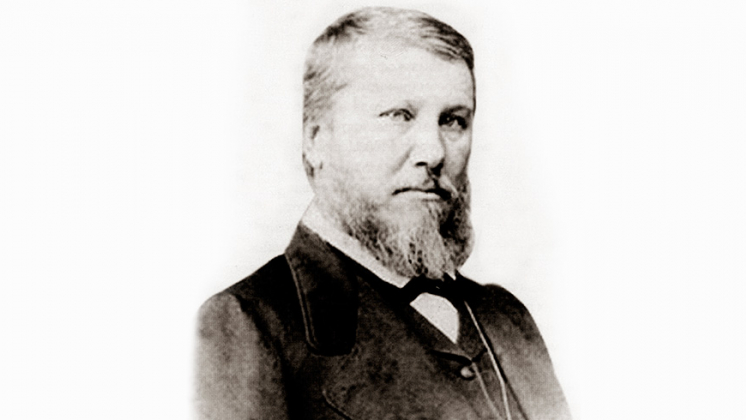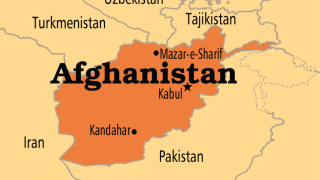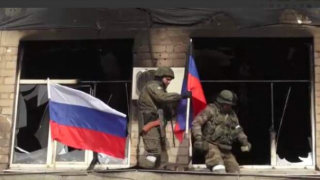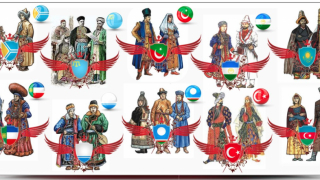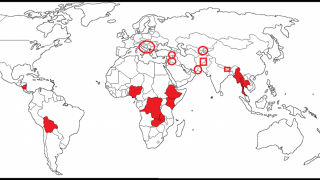Nikolay Danilevsky and the Eurasian Idea
27.04.2020
Throughout the course of human history, the idea of great continents have been subjected to contention and debate. The word ‘Continent’ does not represents the natural and objective division of the land surface, as a substitute, the idea of ‘Continent’ is a discursive object, which encompasses history, specific patterns of society, and signifies the existence of unique civilization. In this regard, the word ‘Continent’ is not a pure geographical concept rather a meta-geographical phenomenon. Moreover, in the meta-geographical version, the idea of the great continents such as Greater Europe, Great West and Greater Eurasia has been mystified, mythologized and imagined on ontological, civilizational and messianic grounds.
When it comes to the idea of ‘Greater Eurasia’, it was the intellectual contribution of famous Eurasianists such as Nikolai Berdyaev, Vladimir Soloviev, Nikolay Danilevsky, Lev Gumilev and Alexander Dugin, who had developed the ideology of Eurasianism or the idea of Eurasia. These scholars have concealed the idea of Eurasia across political, social, theological, cultural, economic and civilizational spheres. Moreover, all these intellectuals were Russians, who pioneered the idea of ‘Greater Eurasia’ from the geographical standpoint. Basically, it was the concept of ‘Russian Idea’ with its spiritual orientation, coined by the Russian philosopher Nikolai Berdyaev that surrounded the Eurasian ideology by adjoining Russian Universalism with Russian particularism. As Berdyaev asserted; “the whole Russian idea declares Russians as people belonging to religious type and are religious in their spiritual make-up”.
Among the Eurasianists, it was the nineteenth century’s Russian philosopher and intellectual Nikolay Danilevsky (1822-1885), who had developed the idea of Eurasia surrounding the cultural and spiritual lines.
He formulated his geopolitical ideas in his famous book ‘Russia and Europe’ published in 1869. Consequently, the course of nineteenth century Europe was marked by imperial competition, 1848 revolutions that swept across the continent, and territorial wars. In this regard, Nikolay Danilevsky developed his critique of the Western enlightenment ideals and its threat to Eastern European and Russian conservative civilization. Hence, with his critique on spiritual and cultural grounds, Danilevsky pioneered the idea of Russia’s breakaway from the degenerated Western Europe—thus, became a one of the leading Slavophiles during the nineteenth century.
As a Slavophile, Danilevsky saw the western modernity as Russia’s ‘Other’—the major enemy. For Danilevsky, Russia is socio-culturally distinct from Europe because, from the civilizational standpoint, Russia is the heart of Eurasia not Europe. In contrast, Russia as the Eurasian organic core is a distinctive civilization independent from that of Europe, which illustrates a separate spectacle across political, economic and cultural compass. Moreover, in his famous book ‘Russia and Europe’, Danilevsky criticized the westernization attempt of the Peter the Great two centuries earlier, which morphed Russian society into archeo-modern form.
As a philosopher of history, he saw the origin and progress of the Russian civilization as completely different from that of the Europe. To contemplate this outlook, he proposed to rethink about the universal approach to history, by rejecting the linear worldview of the historical process. For Danilevsky, the world history is not capable of adjusting and identifying the local ‘historico-cultural types’. It was only famous British historian Arnold Toynbee, who correctly understood the distinctive nature of the Russian state. As he remarked; “Russia is a Byzantine type state…the church may be Christian or Marxian, so long as it submits to being the secular government tool—And under the hammer and sickle, as under the cross, Russia is still ‘Holy Russia’ and Moscow is still ‘The Third Rome’”.
In this respect, Toynbee’s description of the Russia state, characterizes Russian society as the complete anti-thesis of the west. However, in the Danilevsky’s perspective, Russia as the geographical flat landmass lies at the center of Europe and Asia, which institutes an inherent relation with Eurasia across historical, geographical and civilizational lines. Similarly, Eurasia as a sacred space espouses a distinctive civilization, which is multi-cultural, multi-ethnic, and thus, represents itself as the true symbol of the collective identity. It was because of this pluralistic and organic multi-culturalism across the huge continuous landmass that compelled Danilevsky to denounce the western notion of ‘universal humanity’. For Danilevsky, the phenomenon of the ‘universal humanity’ lacks the originality and the true essence, hence, to replace this abstract notion, he introduced the concept of ‘all humanity’ that resembles the greatness of multi-culturalism.
On the contrary, by overhauling the impression of collective identity within the Eurasian essence, Danilevsky formulated five major laws concerning the development of ‘historico-cultural types’ along with typical identities.
The first law deals with the linguistic homogeneity that contours a specific community. The second law treatises about the political sovereignty during the course of community growth. Likewise, the third law surrounds the formation of a unique culture that distinguishes a specific community from the others. Similarly, the fourth law treatises about the ethnic and political diversity within certain topography. Lastly, the fifth law deals with the development of civilization with certain demographic attributes surrounding the specific topography.
In the light of these laws, according to Danilevsky, Russia on the great horizon of the huge Eurasian landmass, presages a unique cultural type that upholds ethnic and cultural hybridity by forming an identitarian based heterogeneous civilization. Moreover, it was because of this cultural and ethnic hybridity, Russia was able to establish a great civilization parallel to Roman-Germanic world. Last but not least, when it comes to the contemporary Eurasian discourse especially from the Russian viewpoint, the scholarly work of Nikolay Danilevsky has a special place in the Russian political history.

